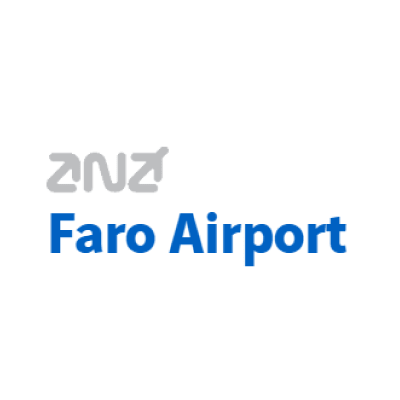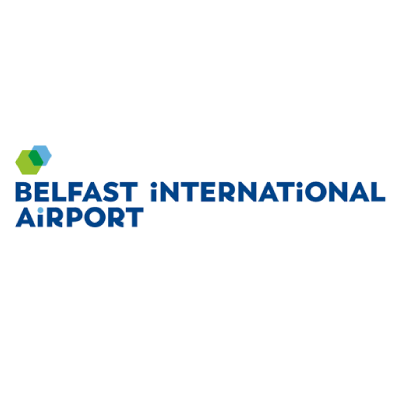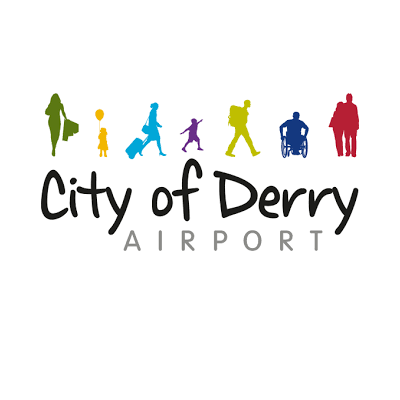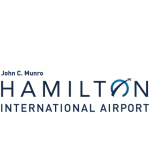The modern-day airport is more than just a gateway offering a means for passengers to get from A to B. Instead, it’s a highly-interactive hospitality and retail hub where passengers can purchase high-quality products, enjoy memorable dining experiences and visit as a destination in its own right.
This major airport transformation is largely down to technological advancements, which are evolving how airports engage with passengers and the level of personalisation they can offer.
One of the most obvious yet compelling pieces of technology is the humble mobile app. Here we will discuss mobile apps that create passenger loyalty and why every airport can benefit from one.
How apps are transforming the way we travel
At the recent International Airport Review Online Summit, panellists discussed the importance of personalisation at the airport. “I believe the simplest thing to do when it comes to personalisation can really add to the passenger’s experience and ease their journey within the airport,” said Rashid Al Busaidy, Head of ICT Strategy & Technology Innovation at Oman Airport. At Rezcomm, we believe an effective way of easing the passenger journey is with a dedicated airport app.
Multi-functioning airport apps offer limitless opportunities to inform, engage and sell to passengers. For starters, passengers can use an app to check their flight status, order duty-free, check the gate status, way find, check the availability of lounge, monitor queue times and chat with airport customer services.
Contactless journeys
Airports can also use mobile apps to support contactless journeys. For example, a passenger purchases a Fast Track ticket using their mobile by scanning a QR code. The app safely stores the e-ticket and lets the passenger scan it to pass through the airport touch-free.
Getting to know passengers & developing loyalty
“If you want to learn more about the passengers at an airport, how do you do that, and what ways can you find that out?” asked Dave Wood, Client Director of Airport Services at redcentric, at the IAR Online Summit. He added, “there’s the traditional app and a loyalty scheme approach,” and we think it’s an idea every airport should consider.
Mobile apps that create passenger loyalty are fantastic for gathering customer data, turning it into valuable insights and using it to build better experiences. The goal being to improve customer satisfaction, increase revenue and keep passengers returning to the airport time and time again.
Why are customer loyalty programs important?
In an increasingly competitive industry, a unique customer loyalty program could be what differentiates you from other airports and even helps win customers for flight bookings from airlines and OTAs.
Did you know that members of customer loyalty programs are 75% more likely to make another purchase after receiving an incentive? In addition to generating more revenue, mobile apps can also help improve customer retention through increased loyalty. And with new customer acquisition costing five times as much as retaining existing customers, it pays to prioritise passenger loyalty.
Loyalty programs must innovate for value
While mobile apps that create passenger loyalty offer a plethora of benefits to the airport, not any old app will do. The airport app must deliver a loyalty program that provides value for passengers to make them want to download it, sign up and earn points through airport purchases.
It’s essential to create a deeper meaning so that customers don’t just think you’re trying to get them to spend more money – even if that’s the goal. The loyalty program should give passengers something to get excited about and make purchases they want more affordable and easier to attain.
Real-time promotions
One way an airport can boost mobile app interactivity is with real-time promotions. This is where passengers can instantly redeem their loyalty points in exchange for a product or service at the airport.
A quick example – a passenger walks into a coffee shop in the airport, and the app notifies them that they can exchange 200 points for a latte. They get a code on the airport app, which the barista scans, or perhaps they sit at a table and pre-order the latte straight from the app for added convenience. The passenger is satisfied knowing they’ve got something they would have bought anyway, free of charge. And the airport coffee store benefits from gaining a customer and the opportunity to cross-sell additional products to increase their spending.
The same could occur in an airport lounge. Upon entry, the airport mobile app sends passengers a menu of items they can redeem with their loyalty points, like a glass of champagne or even additional time. It’s an added luxury passengers will enjoy and keeps them in the loyalty loop of wanting to spend more with the airport to reap more rewards.
Personalise loyalty programs with customer data
Achieving true value with an airport loyalty app requires drawing on passenger data from a CRM system and using it to match rewards to their wants, needs and preferences. It’s that extra level of personalisation that makes passengers feel known and valued by an airport.
Expand your airport loyalty program beyond purchases
And it’s worth remembering that you don’t necessarily need to just reward passengers for purchases. Non-purchase actions like sharing your airport’s social media content, subscribing to your mailing list, leaving feedback and referring friends to download your app are all extremely valuable to your airport in terms of increasing brand awareness and, therefore, worth rewarding loyal passengers for.
Airports apps can be a single source solution
While we agree with many of the points made during the IAR Webinar on ‘Creating a Personalised Passenger Journey through Innovation,’ we were slightly surprised to hear panellists dismissing the need for an airport app. “Is it really the way forward to have your own airport app? Or do you give the data and valuable info to platforms where the customers actually are?” said Mats Berglind, Digital Innovation Manager at Swedavia Airport.
“We have no desire to create an airport app. We think we have data inside our airport that is valuable to the passenger. We know that passengers are going to the airline apps right now and see it as an opportunity to equip those platforms with the right amount of data to ensure that we have a connected experience for the passenger,” added Stephen Saunders, Director of Innovation & Information Technology at Cincinnati Airport.
From our point of view, while there is value in collaborating with airline partners to share airport information with passengers, airport apps can also be a single source solution for passengers in their own right. Achieved through:
- Providing an ecommerce platform for booking flights, hotels, holidays & parking reservations
- Supporting passengers with useful booking info and reminders
- Enabling passengers to manage their bookings and upgrade their reservations, for instance, a closer parking space or valet parking
- Providing easy booking solutions for ground transportation services like taxis, buses and real-time info on when it’s arriving
- Providing helpful info such as which queues are the shortest and upselling fast track tickets when the airport is busy
- Supporting wayfinding so passengers can quickly navigate the airport
- Offering ecommerce purchases such as duty-free, retail and food and beverage for click and collect or gate delivery
- Sending personalised push notification offers at the airport
- Enabling passengers to leave feedback
- Providing easy access to customer service operatives
And the list goes on.
In fact, we’d argue an airport app can support passengers through the entire customer lifecycle, from the ‘Active Evaluation’ stage, where the customer is searching for and comparing the best flights, right through to the ‘Loyalty Loop’ stage, where the customer is encouraged and incentivised to book with the airport next time, i.e. where would you like to go next? Did you know you can book flights directly with us, and you’ll earn ‘X’ loyalty points if you do? Here’s an added incentive of free Fast Track!
What builds app loyalty?
We all know that users can be a bit fickle when interacting with apps, so as we’ve highlighted through this blog post, airports need to give passengers a reason to maintain mobile app interactivity. Here’s a quick rundown of some of the ways to do it:
1. Adopt a multi-channel customer service system
A multi-channel customer service system will improve accessibility for passengers and ensure they can get the support they need no matter how they contact your airport and with what device. The better you support your passengers, the more likely they will remain loyal to your airport. Adding customer service support to your airport app opens up another communication channel and enables you to adopt systems like AI chatbots to answer customers’ questions quickly.
2. Provide exceptional customer service
Providing passengers with the opportunity to leave real-time feedback via your mobile app paves the way for your airport to deliver real-time solutions. So, say a passenger is dissatisfied with the cleanliness of the airport toilets and reports it. You can deploy a cleaner immediately to resolve the issue and apologise to the passenger with a goodwill coffee voucher. The passenger sees you’ve acted immediately and rewarded them for helping your airport improve. They feel listened to and valued and are, therefore, more likely to return to your airport again and even tell others about how great you are!
3. Focus on the customer, not the competition
Don’t worry about what your competitors are doing. If you want passengers to keep using your app and engaging with your airport, focus on delivering the personalised content, offers and rewards they’re most interested in.
4. Be consistent
Your mobile app should be an extension of your airport brand and deliver what your loyal passengers have come to expect. Ensure you consistently provide customers with personalised travel content, discounts and rewards to boost mobile app interactivity and retain passenger loyalty.
5. Build credibility through meaningful customer interactions
Dave Wood mentioned at the IAR Online Summit that “mobile apps are great for engaging with loyal and regular passengers who are passing through every week to ensure they’re offered the best possible service and feel known.” Linking your mobile app with Rezcomm’s powerful CRM solution helps draw on previous interactions like emails and calls and customised notes that relay important information about a passenger. With the passenger’s ‘backstory’ at hand, your airport can build credibility through meaningful customer interactions delivered via your mobile app.
Deliver added value with Rezcomm
Take passenger engagement to the next level and boost customer loyalty with the Rezcomm Marketplace. Download our Customers brochure to discover our advanced solutions for getting to know your passengers and developing meaningful communications. And if you’re interested in mobile apps that create passenger loyalty, we can help with that too! Book a meeting with our team to get started.






























